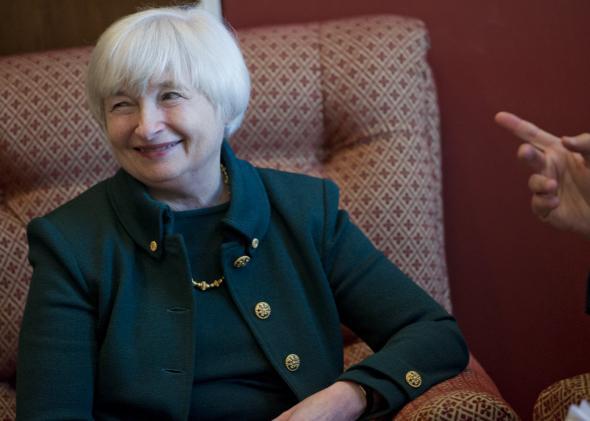We tend to hear about how women pay a motherhood penalty, wage-wise: As Stephanie Coontz pointed out in the New York Times in 2013, working mothers earn 5 percent less per hour per child than comparably employed childless women. But in the rarefied field of economics Ph.D.s, women don’t pay a motherhood penalty; they pay a wife penalty.
According to a study that was presented earlier this month at the American Economic Association, women (who make up about a third of Ph.D. students in economics) who got married in the first five years after they received their Ph.D.s had a 23 percent salary growth penalty—in other words, their salaries grew much more slowly— compared with their unmarried female counterparts. Men who got married in the half-decade after they got their doctorates? They received a 25 percent salary growth bump—their salaries grew by a larger margin—compared to other men. Wendy Stock, a co-author of the study and a professor of economics at Montana State University, said in an email that among female economists, the penalty for having children was not statistically significant. “In addition, our estimates didn’t indicate that the impact of having a child was any different for males than for females,” Stock wrote. (If Ph.D. candidates have children while still in graduate school, they take longer to complete their studies, regardless of gender).
So what’s going on here? It seems like these highly educated women tend to be the “trailing spouse,” which means that they are more likely to put their partner’s career aspirations above their own. According to an earlier paper that Stock co-authored, which tracked the Ph.D. class of 1997, “The percentage of women who reported that their partner’s job opportunities were important for their own job choice is almost twice that of men.” What’s more, the married women were more likely to have changed employers during the first years after graduation than women whose marital status did not change.
Though this is a very specific study tracking a small, highly educated group of men and women, its findings show that institutional equality can only do so much. Stock’s research has found that there is no difference between men and women who are striving for economics Ph.D.s in terms of their financial aid awarded, research assistantships granted, or the time it takes to get a doctorate. But married women are still putting their aspirations second. It’s worth noting here that all female economists who remain in academia also spend more time teaching and less time researching than their male counterparts, suggesting that they’re also possibly putting their career advancement second to the good of their students. (Stock points out that research can be rewarded more highly in tenure and promotion decisions than teaching is.) Even among highly educated, motivated women in a male-dominated field, it seems that cultural expectations of female selflessness still dictate outcomes.
